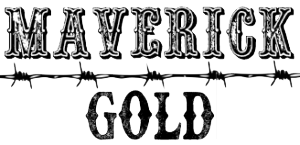It’s a new year; how about making a change that really matters – for a change!
I don’t like new years resolutions. Maybe because everyone does them, and contrarians like me generally cringe at copying everyone else. But it’s also because so few of them stick. Every year when January rolls around gyms fill up, cigarette sales drop, credit card payments increase – slightly… All good trends. But, within just a few weeks behaviors start to revert back to baseline. So why bother?
The good part of it all is that people have actually thought a little about how they would like the next year to be different than the last one; have admitted that personal change would be valuable. (This thankfully flies in the face of the lazy “just be yourself” culture). But why is failure to change our behavior so prevalent?
There are four basic components of human behavior – thinking, doing, feeling, and physiology – that are linked together like gears in a machine. Move one, and the other three automatically move too. And of the four, THINKING is king. What you do is always based on what you are thinking, and your physiology and feelings naturally flow as a result of that thinking and doing.
This behavior machine is why what Solomon said, “As a man thinketh, so is he”, is so true. Do you really want to change your behavior? Do you really want to live healthier, be more financially responsible, have happier relationships? Then the first thing you need to do is to take charge and change your thinking. Which brings us to the subject of Filters.
All of us see, or think about, the world through a set of filters. Some we were born with, but most we’ve acquired through the process of living. These filters, like shaded glasses, alter our perception of reality, of truth, of life, and of the laws that govern it. Consequently, they limit our ability think clearly and prevent us from making smart choices. So, here is the bottom line – If you want to change your life, change your behavior. If you want to change your behavior, change your thinking. And if you want to change your thinking, change your filters. But here’s a warning: changing your filters can be both exciting and frightening, even painful. This is why so few exercise the courage real substantive change requires. But if you are up to the challenge, if you are serious about making next year better than last year, here are a couple steps you can take to start correcting your filters.
- Change your associations. Identify people whose lives exemplify what you want yours to be like and figure out how to spend more of your time with them. Your regular crew will resent you, but they are largely responsible for the filters currently limiting your ability to see the real world. Expanding your circle of influence will take courage, both to reach out and form new relationships and to put limits on the old ones. But this is the best way to start seeing new possibilities, new realities. Be very, very careful with your choices though. All that glitters is not gold!
- Take control of your input. “Be careful little eyes what you see, be careful little ears what you hear…” Some of you grew up singing that little song. But as simplistic as it may seem, it represents a powerful truth. Filters form and get thicker with repetition. This is why family systems become such powerful influences – they get daily repetition. Whether you see yourself as valuable or vulnerable has a lot to do with the daily reinforcement you received as a child. What you consider healthy is largely a result of both your family influence, education, and the marketing you have been exposed to. Whether you view yourself as a victim – of your genes, of big corporations, of the government, of fate – or a victor, again the result of your input. Limit and be more selective in what you watch and listen to. Read more – selectively.
So what changes are you hoping to see in your life this next year? The changes you were intending to make last year, did they happen? If you are serious this time, get serious about your filters.
“Brothers and sisters, whatever is true, whatever is noble, whatever is right, whatever is pure, whatever is lovely, whatever is admirable–if anything is excellent or praiseworthy–think about such things.”
Dr. Lon Peckham provides comprehensive and wholistic dental care in Priest River, Idaho. He is a consultant certified in Lead Management and Choice Theory, Advanced Dental Implantology, as a Lifestyle Health Facilitator, and is currently pursuing certification by the American Board of Lifestyle Medicine. He helps patients and dentists successfully incorporate whole-health into their lives and practices.










